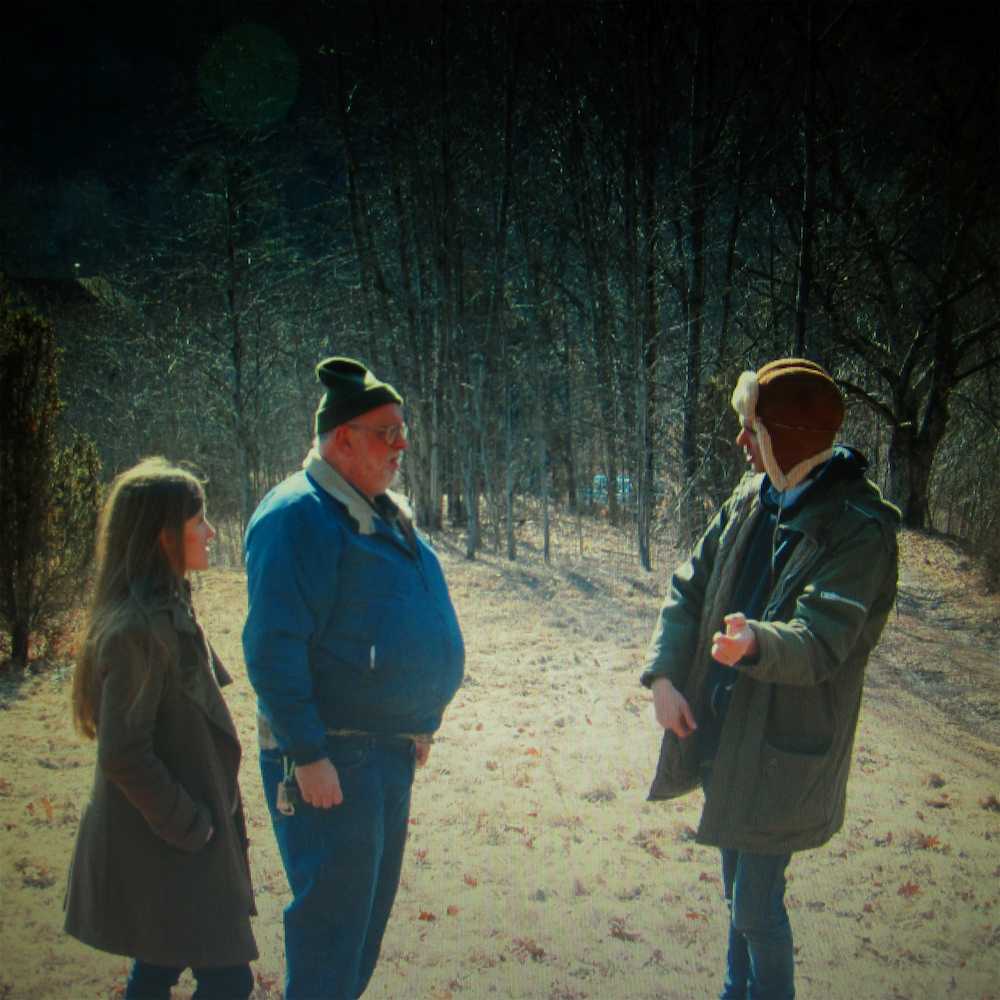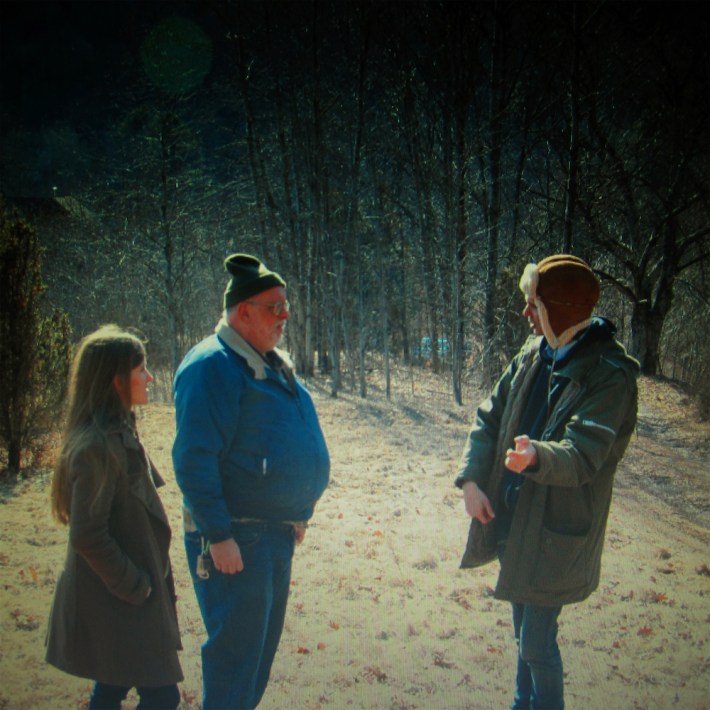- Domino
- 2012
"That doesn't make any sense what you just said." Toward the end of "Unto Caesar," Swing Lo Magellan’s penultimate track, Amber Coffman speaks out loud a common criticism of Dirty Projectors: that they're inscrutable and self-indulgent, that leader Dave Longstreth embraces idiosyncrasy just for the sake of it. This is all true. By the time their sixth full-length was released in 2012 -- 10 years ago this weekend -- Longstreth had written a rock opera about Eagles founding member Don Henley and an album that reimagined Black Flag's Damaged without consulting the original source material. The band's breakthrough Bitte Orca was a massive accomplishment -- fueled by towering orchestration and intricate three-part harmonies -- and they exploded in popularity because of it. By the time that album was released, Dirty Projectors had already plotted out collaborations with the likes of Björk and David Byrne, two masters of maximalism.
But for its follow-up, Longstreth wanted to go smaller -- rid himself of a tendency to overcomplicate, focus on songwriting as an instinctual and indiscriminate artform. Talking about the in-studio chatter that leaks into "Unto Caesar," Longstreth explained: "The idea of letting a recording be a moment in time appealed to me. With digital recording, it's easy to create a perfect text of whatever song you have, but we kept on coming back to imperfection and fragility."
Longstreth and Coffman decamped to upstate New York to live in an old house -- touted as being built by bootleggers in early prohibition days -- and Longstreth made it his mission to write as much as he possibly could. The album cover depicts the pair of them talking to a neighbor, Longstreth's arms suspended in mid-air like he's playing an invisible chord. "I just got obsessed with the idea of a song," Longstreth said in one interview. "What a song could be, what a song could do, what a song could mean. When we finished touring on Bitte Orca, I just got into it, writing one song after another. Exploding enthusiasm for that." In another: "I got into a bit of a routine: I'd wake up and drink a couple pots of coffee, and just kinda go to it and write without imagining any end. Basically just write as many songs as possible, to try and open the window. The window turned out to stay open for about six months, and then I felt like I was kind of done, but I wrote about 70 songs."
That abundance of songs would be whittled down to the 12 on Swing Lo Magellan. Dirty Projectors ended up recording the album at that old house, bringing in Nat Baldwin, Brian McOmber, and Haley Delke -- all part of the core Dirty Projectors crew at that point -- as well as stringers like CJ Cameieri, Rob Moose, and Nadia Sirota. (Angel Deradoorian left the group before the album was recorded, opting to pursue a solo career.) The result is a shaggy, naturalistic counterpoint to Bitte Orca’s overarching sense of grandeur. Longstreth let go of the exhausting thought exercises that characterize most of his albums, and made something that sounds ecstatic and warm and improvisational, while still retaining all the gleeful inventiveness that makes this band so great.
Perhaps because of the condensed pace at which the album was written, the throughlines to the songs on Swing Lo Magellan are easy to pick out. Many of them are about societal collapse. Opener "Offspring Are Blank" recounts the Adam and Eve story through the lens of overpopulation, "Gun Has No Trigger" is a Kafka-esque nightmare about our impotency to effect change. "Just Like Chevron" is about the environmental impact of offshore drilling, told from the perspective of a man dying on an oil rig: "Don't think I won't try/ When I close my eyes/ Wherever the people will drive/ That's where I will survive." Longstreth, who was 30 when Swing Lo Magellan was released, was starting to think about the impact one leaves behind on the world when they eventually go. "About To Die" is about the fear of letting life pass you by and not really understanding what it all means. Though Longstreth still exhibits a knack for the surreal -- "the vandal laughs into his hood," "goblins dressed up like a wound" -- his lyrics on Swing Lo Magellan are noticeably and purposefully less obtuse. "Foolish, I know, but I'm about to die," goes the aching hook on that one. "There is an answer/ I haven't found it/ But I will keep dancing 'til I do" is the chorus to another.
Sonically, the album is all over the place, leaping from shuddering 808 drum machine blasts to freewheeling folk songs. The two musicians that Longstreth cited most often as inspirations in contemporaneous interviews were Neil Young and Lil Wayne -- disparate influences that exhibit his consistent fascination with melding decades' worth of music history together. But simplification is the name of the game on Swing Lo Magellan: a desire to wield the same dynamics of Bitte Orca but with a lighter touch. The album alternates between layers both dense and airy: handclaps give way to booming drums, picked-at guitars turn slicing and back again. Swing Lo Magellan does more with less. Its back half is home to some of Dirty Projectors' most satisfying and straightforward songs: the yearning "Impregnable Question," which was a first take recorded in only 10 minutes, and closer "Irresponsible Tune," which reflects Longstreth's embrace of a more spontaneous mode of creation: "Sing all day/ Record and play/ Drums and bass/ And a guitar." "See What She's Seeing" and "Unto Caesar" feel like testaments to the primal joys of letting voices collide with each other; both songs create an intangible magic. And "The Socialites" has long been my personal favorite Dirty Projectors song, a song about otherness that is delicate and subtle and endlessly fascinating.
Bitte Orca and Swing Lo Magellan undoubtedly display Dirty Projectors at the height of their powers, and they act as perfect foils for each other. If Bitte Orca is an urgent attempt to create some sort of utopia, then Swing Lo Magellan is the moment when you realize that perfection cannot exist, when you throw up your hands and realize that you'll never be able to know it all. Time has perhaps propped up Bitte Orca’s unfettered ambition a bit more than Swing Lo, but both albums are stunning in their own right. For an artist who long prided himself on a puzzle-box approach to music, that Dave Longstreth was able to pivot so successfully to a simple but rewarding collection of songs -- or at least make the whole idea of a "simple song" the main conceptual thrust of an album -- is nothing short of remarkable.
We rely on reader subscriptions to deliver articles like the one you're reading. Become a member and help support independent media!







